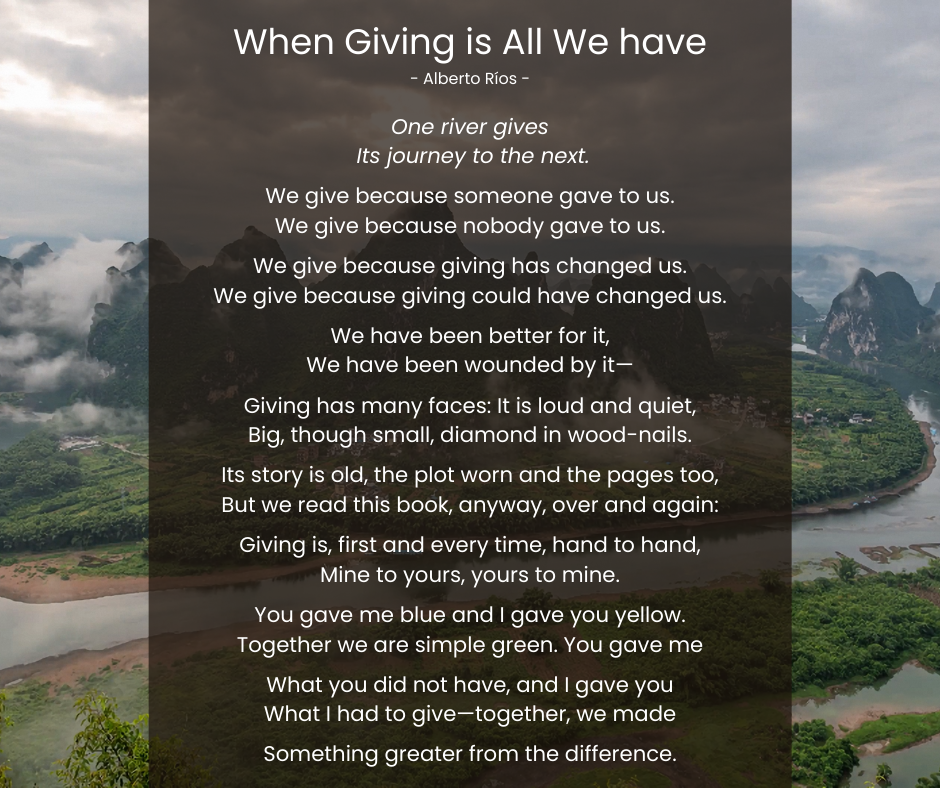Wisdom Pearls We Found in our Waters in 2021
After a year+ of dialogue and discovery amongst practitioners of systems change and social transformation here in North America, the following themes, insights, and discoveries stood out from our conversations and explorations in this year of profound social change.
Context notes
What systems change as a term represents to us: a multi-level process that involves shifting narratives, relationships, structures, and power for the purpose of transforming complex and interconnected challenges in ways that foster systems health, with an explicit focus on building equity.
Our roles as midwives of systems change are evolving as so many systems actually begin to change.
People are feeling more UNCERTAINTY and AMBIGUITY in this time. What is emerging as essential now is supporting folks to tend and navigate the discomfort of this with presence, resilience, adaptive strategy, and grace.
More and more the work becomes spiritual and not analytical. How are we showing up, sensing, feeling, grieving, connecting, healing, and learning to navigate the inherent discomfort of change?
Moving from head to whole-being ways of knowing (and not knowing!), and designing to make space for multiple ways of knowing within our work is becoming more essential.
The field itself is changing -the language that is used to describe this work, the priorities of practitioners and funders, and the composition of the community of practice is evolving.
Systems thinking is fundamentally relational and healing. Healthy systems are connected systems. When we get lost, we can ask:
Where are we supporting connectivity?
How are healing, restoration, trust, love and joy moving through the system?
How can we support and strengthen those flows?
What can absence and disconnection teach us?
We will continue to ask ourselves: what does it mean to center liberation in our practice? Navigating shifts in power and equitable representation in theory vs practice is not easy, as we’re learning here in this community as well (it’s all fractal). Some of what we’ve been uncovering here as helpful and powerful to the work includes:
Ground as humans in historical context in the work.
Do our own healing internally, with our lineages, cultural histories, places; integrate this work with collective change work where appropriate (& non-harmful).
Honor lineages of systems thinking older/other than the Western academy; “Universe as University” (Kevin Deer, Mohawk Elder).
Emphasize place-based, multi-generational community- and ecology-informed approaches to the work. Be mindful of deeper cycles - future generations, giving back whenever we take.
Emphasize story, relationship, integrity, love of self, truth, intuition, the feminine, balance, the power of language, ritual, and direct experience (while still having space for frameworks & maps).
Introduce and attend to power dynamics as part of systems thinking.
Be for each other and the world we want to live in more than we are against what’s not working.
Check for extractive practices within our work and places where we may be normalizing or emphasizing oppressive aspects of dominant culture (in our language, practices, etc) - especially at the threshold of projects.
Meet folks and groups where they are at, help them find the next step, the edge they can meet.
Make space for unlearning and reshaping how we perceive and behave.
It tends to take more time and emotional attention than we plan for, and we must keep slowing down to listen, check ourselves, build real relationships, and call each other in.
Cultivate spaces of affinity for support for all parties as we navigate difference /change.
It’s ongoing work. Patience and pushing edges together are both important.



